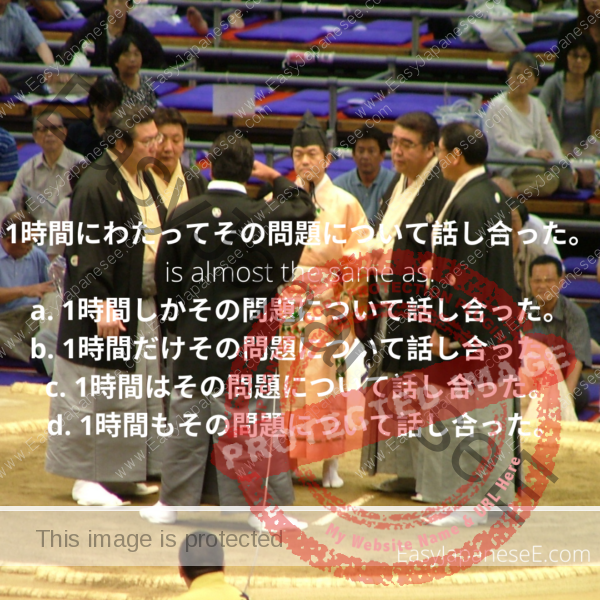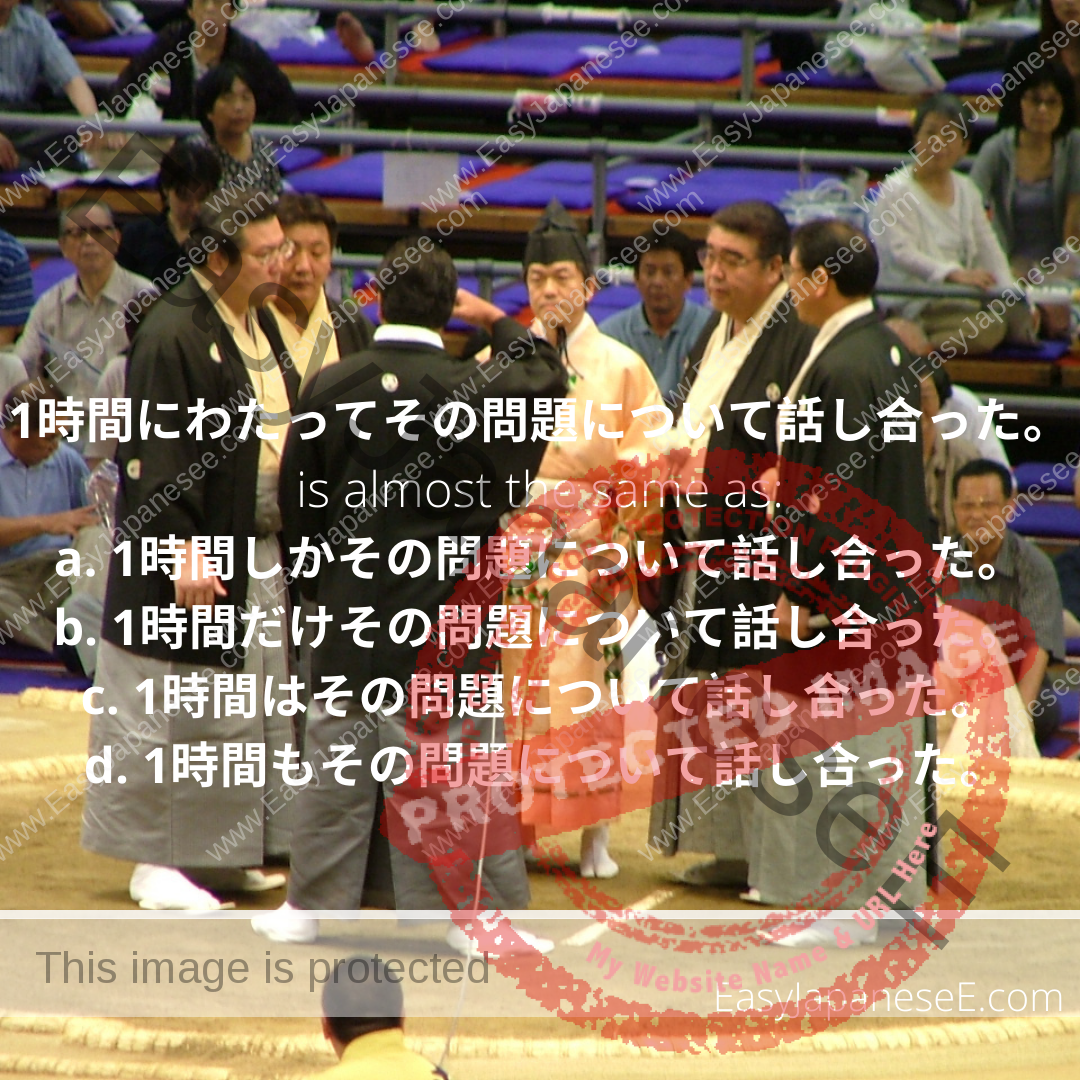
Today’s Question
1時間にわたってその問題について話し合った。
is almost the same as
a. 1時間しかその問題について話し合った。
b. 1時間だけその問題について話し合った。
c. 1時間はその問題について話し合った。
d. 1時間もその問題について話し合った。
Today’s Grammar Point: ~にわたって
~にわたって is an expression to state a range. It usually emphasises the length or vastness of the range but sometimes も can be added and ~にもわたってmakes the emphasis even clearer. Possible English equivalent would be something like “throughout ~” or “for the entire ~”
Connection
[noun] + にわたって
The noun should be a word for a range, distance, duration, etc.
Examples
メアリーさんは30年にわたって、この学校の校長を務めてきた。
Mary served this school as a principal over the entire period of 30 years.この道はここから 100 キロ以上にわたってまっすぐだ。
This road stretches dead straight for over a 100 km from here.月曜から金曜にわたって徹底的な調査が行われるだろう。
A thorough investigation will be conducted from Monday through Friday.
Because this sentence has から we can use まで here but using にわたって emphasises the length of time.この着物は何代にもわたってこの家に受け継がれている。
This kimono has been passed down across the generations of this family.
~にわたる
As わたって is the てform of the verb わたる(亙る), わたって can be used as an adverbial phrase. However, depending on the sentence structure, the verb わたる can be used as a sentence (predicate) verb. It can also be in a contact clause.
メアリーさんの活躍の場は多方面にわたっている。
Mary is active in many fieldsその会議は三時間にわたった。
The meeting went for as long as 3 hours.大雨の被害は関西全域にわたった。
The heavy rain did a lot of damage throughout the Kansai region.京都は1200年以上にわたる歴史を誇っている。
Kyoto is proud of its history which covers more than 1200 years.長年にわたる研究の結果、その薬の効果が確かめられた。
After a long period of studies, the medicine was proven to be effective
Answer to Today’s Question: d
1時間にわたってその問題について話し合った。
a. 1時間しかその問題について話し合った。is grammatically wrong. しか is always used in a negative sentence with ない/ません (or equivalent).
b. 1時間だけその問題について話し合った。means we spent 1 hour only to discuss the matter, so it’s not the same.
c. 1時間はその問題について話し合った。means we spend at least 1 hour to discuss the matter amongst other agendas. It’s not quite the same as “にわたって”
d. 1時間もその問題について話し合った。is almost the same as the original sentence.

